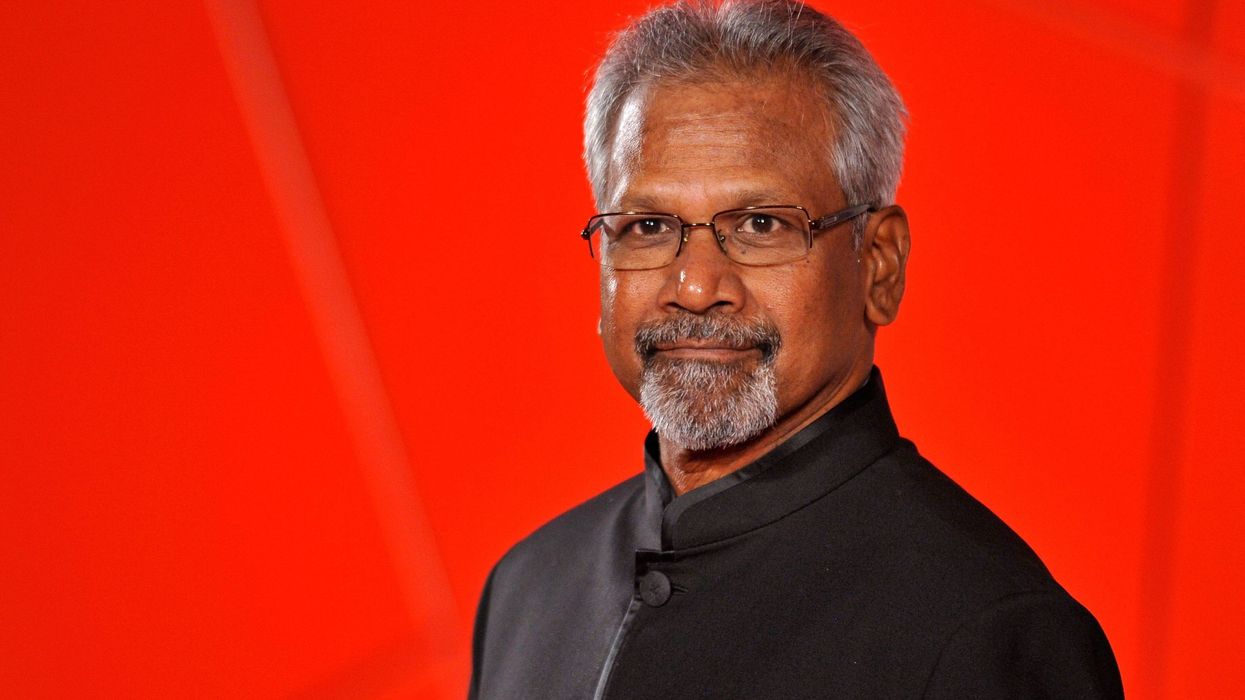Known for making powerful films with strong female protagonists, Mani Ratnam is hands down one of the finest filmmakers that Indian cinema has ever produced. In a career spanning four decades, the filmmaker has made a string of remarkable films in Tamil, Telugu and Hindi. His technical ingenuity and eye for detail set him apart from his contemporaries. He has directed several prominent actors, including Rajinikanth, Shah Rukh Khan, and Aishwarya Rai Bachchan.
On Wednesday, Mani Ratman celebrates his 65th birthday. As the master storyteller turns a year older, here is a look at his five must-watch films that you can watch to know his brilliance as a filmmaker.
Roja (1992)
Starring Arvind Swami and Madhoo in lead roles, Roja marked the beginning of the celebrated filmmaker’s iconic terrorism trilogy. The film centres on a simple village girl who goes all out to find her missing husband after he is abducted by militants during a secret undercover mission in Jammu and Kashmir.
Originally made in Tamil, Roja was later dubbed in Hindi and Telugu and enjoyed a great run at the box office in each language. AR Rahman composed the film’s music and some of its songs are popular even today. The huge commercial and critical success of the film gave a big fillip to the careers of Arvind Swami and Madhoo.
Bombay (1995)
After the roaring success of Roja, Mani Ratman and Arvind Swami joined forces again for a romantic drama film titled Bombay. The film revolves around how the infamous Bombay riots of December 1992 and January 1993 deeply impact a newlywed inter-religious family, which is trying to find a footing in the maximum city.
Arvind Swami and Manisha Koirala received glowing reviews for their poignant performance in the film. Critics heaped praises on Ratnam for dealing with such a sensitive issue with so much dignity and maturity. Bombay is the second in Ratnam's trilogy of films that depict human relationships against a background of Indian politics, after Roja. It was later dubbed in Hindi, Telugu and Malayalam with the same title and performed extremely well everywhere. AR Rahman composed the film’s music.
Dil Se (1998)
Dil Se, which marks Mani Ratnam's first collaboration with Shah Rukh Khan and second with Manisha Koirala, is the final part of the terrorism trilogy of the filmmaker. While Roja and Bombay were originally made in Tamil, Dil Se was an out-and-out Hindi film featuring actors from Bollywood.
Also featuring Preity Zinta in her film debut, Dil Se explores the seven shades of love while touching upon the sensitive issue of suicide bombing. Apart from hitting a home run in India, the film did exceptionally well in the international circuit also. It won two National Film Awards and six Filmfare Awards. AR Rahman again was the man behind the film’s unforgettable soundtrack.
Yuva (2004)
Simultaneously shot in Tamil as Aaytha Ezhuthu, Yuva is a 2004 Hindi film starring Ajay Devgn, Abhishek Bachchan, Vivek Oberoi, Esha Deol, Kareena Kapoor Khan, and Rani Mukerji in lead roles. The film tells the stories of three young student leaders from completely different strata of society who want to eradicate the corruption involved in politics. However, one fateful incident on Kolkata's iconic Howrah Bridge changes their lives forever.
Yuva fared quite well in multiplexes but failed to receive great response from single screens. The film’s performance overseas was also not up to the mark. However, it went on to perform extremely well on its television premieres. Of all the actors, Abhishek Bachchan received the best response for his performance as Lallan Singh.
Guru (2007)
If you want to see one of Abhishek Bachchan’s finest performances, Guru is the film you should not miss at any cost. After Yuva, Mani Ratnam once again succeeded in getting the best out of Junior Bachchan and gave him a film that never fails to find a mention whenever someone lists down his top performances.
Also starring Aishwarya Rai Bachchan in the lead role, the film was rumoured to be a biopic on the renowned industrial tycoon Dhirubhai Ambani, but Mani Ratnam refuted the claims and said it was a pure work of fiction.
Keep visiting this space over and again for more updates and reveals from the world of entertainment.




